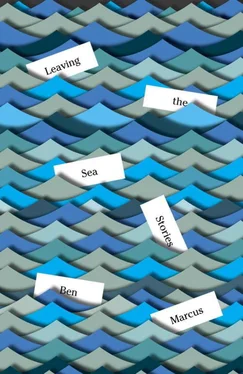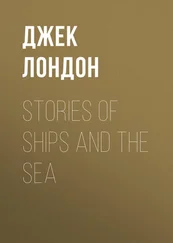The colleague smiled to herself as she performed an inscrutable modification to her drink. Sugar, milk, straws, little sticks. Something that looked like a rubber eraser, waved over the drink? Part of the coffee poured out into the sink when the taste caused her mouth to winch. Renewed administrations, careful sips, exaggerated grimaces and frowns. The colleague responded to her own actions with some kind of overstated mouth semaphore—for whose benefit Thomas didn’t know, since she had yet to even stand and face him, fat Thomas the sadness machine, Mr. Thomas Last Name with the blankety blank, Thomas Fuckinstein with a cold Mr. Horrible.
Thomas cheated himself into her sight line. Oh it was a neat little shuffle, icebreaker number 49. He offered up his eye contact, but the colleague still seemed facially averse. She was perhaps one of those people said to be in dialogue with herself, preoccupied, super-focused, in deep parallel, enjoying her own company (something only unbearable people are encouraged to do, when no one else is capable of being near them), smugly demonstrating that she was a society unto herself and did not need a mottled, fat, overdressed, pee-soaked coworker like Thomas to chorus with because the two of them happened to be getting coffee at the same time. What so stymied Thomas was that the colleague was hoarding the moment, playing his role for him, leaving him to wobble blandly behind her and pretend that he was not eavesdropping on—or even aware of—an encounter he had every right to take part in. The colleague had effectively split in two and Thomas had become the third wheel. The anthropology on this seemed doomed to him. Everyone else in the world may as well die, since I’ve got this encounter covered. Ladies and Gentlemen, now playing the part of Thomas: the Colleague! Apparently long ago a contract had been struck (he pictured her proud, bearded father, young and strong, with one of those oversized European wallets stitched to his T-shirt) that compelled her to participate facially in the smallest endeavors. He saw her accepting this responsibility without agony, signing her name, believing that she had this one licked. Oh my God, the world is so easy! I can so beautifully do that!
Soon Thomas would be getting his own coffee, and he’d probably throw out his back pressing down the lever on the coffee thermos. He could possibly stage his own performance to demonstrate his parallel version of grotesque self-sufficiency. If the colleague wanted to destroy him with her publicly antic solitude, he could huddle with himself and confer over a mock issue, to demonstrate how athletically committed he was to being by himself, since solitude was a sport, at least as the colleague practiced it. He could weigh a scenario, for instance—this suggested a possible physical expression—shrugging, hunching, balancing the scales—and would show anyone looking at him—Sully!—that he was so absorbed by his own issues—Look at Thomas! He’s lost in thought!—that he had unknowingly begun to dramatize the pros and cons of an argument whose details were elusive to outsiders but clearly important.
Except who really did this but a character in a play— oh you sad fakers, or that moron—the Shrugger, was he called?—who showed up now and then in one of Thomas’s son’s cartoons. Burned into the screen. A fucking television ghost. This had led the boy—miracle that he even spoke—for a time to say nothing but “I don’t know” for weeks, even when you said Good Morning to him and Good Night and I Love You and Please Stay Out of the Road. It was always “I Don’t Know” that he responded with, a small lad in food-stained pajamas, and he spoke it quietly and with so much calm certainty that it was hard not to believe him and hard not to think that this small boy had somehow cornered the market on the perfect response.
Careful, William.
I don’t know.
Good morning, cutey.
I don’t know.
Thomas finally decided that if you had to settle on a single phrase and broadcast it in the home until the people around you succumbed and cried uncle, or just cried, not that June could really cry, then this one would do fine. His son didn’t know, and that made two of them.
The colleague probably knew, he thought, looking at her. Of course she did. She knew and she knew and she knew, and then some. She knew with enough knowing to burn, and God help you if you’re not her, because speaking of cornering the market, she’s cornered the market on this. What is that like? he wondered. What is it really like? Can you tell me, Colleague? Can you tell me what you know?
It was a thousand years later, and it seemed that a terrible snow had fallen and already melted in the Moors. Creatures had been born and flourished and died and now turned to dust, the last traces of which you could just see if you squinted at the very fine air that seemed to be slowing down around Thomas, and then the colleague wheeled around with her coffee and walked right at him.
Thomas looked quickly away, to where there might have been trees growing, the branches stretching out and shading him with little splashes of shadow. In the end, what a pretty place this was. He saw a fine path the sun could take as it rose and set, and the people could crawl from their bloody holes right past his feet and drag themselves over to the watering pool, to drink or die there.
The colleague’s face— where had he seen it before? —looked so fresh and young and her skin was radiant, as if no one had ever beat her in the head until she wept herself to sleep. She had made it through, one of the few, and here she was to rescue him! A little thrill started to bloom in his chest. Why wouldn’t everyone want to be poisoned by this sweet air? The dust around Thomas was thickening into a swirl, and he was sure glad it wasn’t him sauntering over with such speed and purpose toward the scary man waiting in line. Can’t go through him, can’t go around him, must go over him: the name of a game his father used to play with him. Oh to be me right now, for a little while longer. Birds clustered up from everywhere, it seemed, and he marveled that the colleague could still make such a brave show of things.
Thomas braced himself as she approached, but the colleague was all easy smiles and there was no avoiding this one.
“Hi, Thomas, what’s up?”
Of course she knew his name. Of course she did. She bent her head into her cup, sipping and looking up at him as if nothing, nothing, nothing.
There was a luscious chemical in this moment; he felt it in his blood like a great seizing itch. A man would die if he felt like this for too long. A man would die . He stood his ground and watched the colleague’s face start to register him as he failed to speak. The face can’t hide what it knows! he wanted to say. For all of your power, your face is showing me what you think!
It was true. She was struggling desperately to appear relaxed as she stood in front of him and he didn’t respond— while I stand here melting —but her eyebrows were worrying their way down and she seemed ever so glad that she could shield her mouth in the mug. That very same mug. No matter what we’ve been through, it is a mug that I truly love .
Her whole face should be bottled, studied, sold. This was a fine mix of feelings: concern tweaked too hard, a game attempt—learned perhaps in an acting class—to show concern, since she must know that she was obliged to show concern here—this man was not speaking, and oh, those trees —but she had never been so consciously pressed to exhibit such a shattering dose of concern, probably, and how did one really even do that without getting a shit-crazed angelic look going? This was a woman who was scared out of her mind looking at him.
Читать дальше












